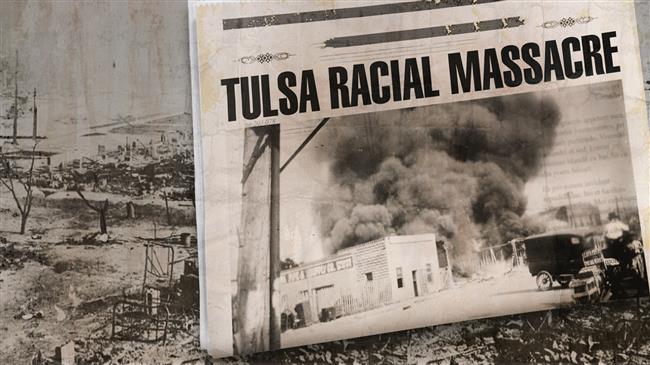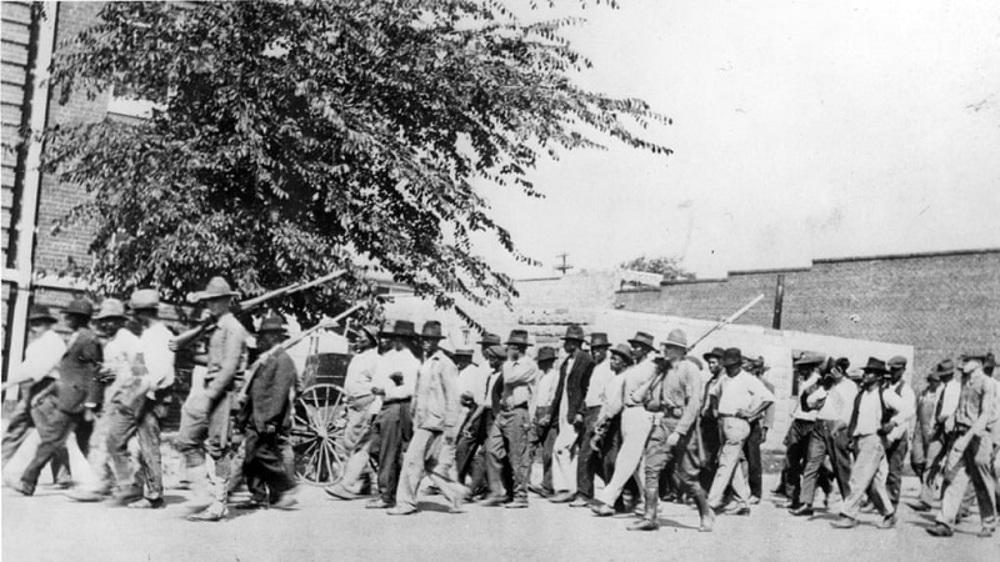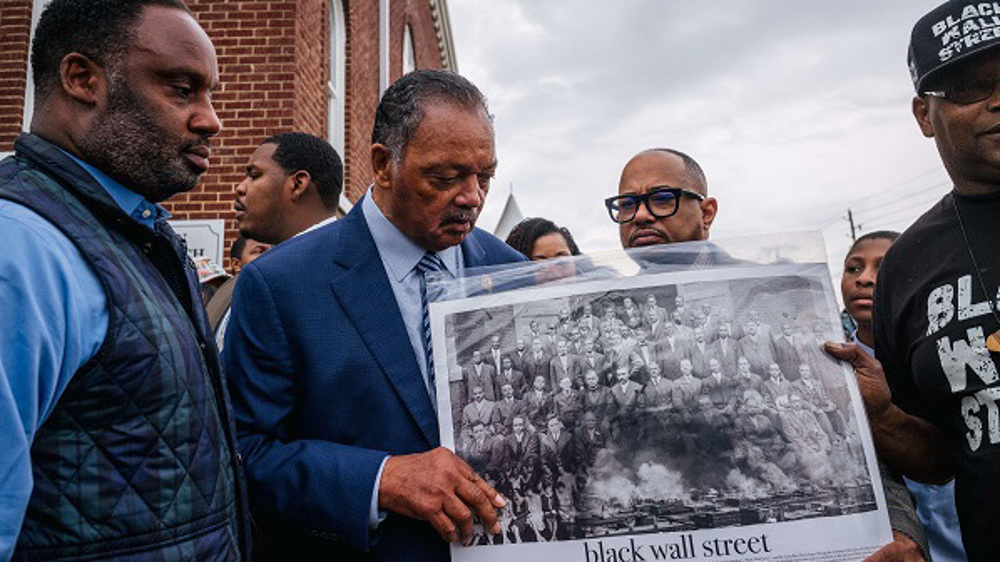US Black Democrats press leaders for reparations vote this month
US Democratic members of the Congressional Black Caucus have intensified their efforts to stage a reparations vote for African Americans this month, citing the 100th anniversary of the Tulsa Race Massacre as their new impetus to fight racial and class discrimination in the United States.
The reparations vote lodged under the House bill number HR-40, if passed, will establish a commission to study and develop proposals to compensate to African Americans affected by slavery and discrimination in the United States and recommend appropriate reparations.
Rep. Hank Johnson (D-Ga.) said the anniversary of the Tulsa Race Massacre, which was attended by US President Joe Biden at the site of the 1921 massacre in the Greenwood neighborhood then known as Black Wall Street Tulsa, Okla. late last month, made the urgency of the bill clear to the Black Caucus.
"[It] became even more apparent to us how important it is to pass HR-40 and to do so certainly before we leave for the August recess,” Johnson said as quoted by The Hill on Tuesday.
Johnson pointed out that neither the victims of the Greenwood massacre, nor their descendants, had ever been compensated for their losses — not even from their own insurance companies — which has only lit a fire under reparations supporters to pass the bill this year.
“We came away united with the strong feeling that now is the time to do [it],” he said. “And so we will now address leadership with this newfound sense of energy and urgency,” Johnson insisted.
Former head of the Black Caucus, Rep. Barbara Lee (D-Calif.), who was also in Tulsa, offered a similar assessment of the emotional visit, which included meetings between the lawmakers, descendants of victims and the three living survivors of the massacre.
“Tulsa is ground zero, I believe, in terms of raising the level of awareness, and the whys, and the importance of reparations and getting H.R. 40 passed,” she said. “We’re pushing hard. I don’t know of a date yet, but ... I’m encouraging and urging and we’re hoping that this is seen as a priority and will be brought to the floor.”
Analysts believe that discrimination and violence against people of color in the US is a systemic problem rooted in the legacy of slavery and legalized segregation in the country which surged under former President Donald Trump.
Dr. Abayomi Azikwe told Press TV in an interview that police practices employed in the US today have their origins in the slave patrols of the 19th century that were designed to keep incarcerated Africans under the control of white landowners, merchants and officials.
During his visit to Oklahoma to commemorate the 100th anniversary of the massacre of the defenseless Black residents by white supremacists in Tulsa, Biden insisted that Americans need to acknowledge that systemic racial discrimination and injustice that existed in its dark past still persisted in the present.
President Yoon Suk Yeol to be removed from office
At least 19 Gazans killed by Israeli airstrikes since dawn: Medics
Leader: Iran neither has nor needs proxy forces
US fighter aircraft shot down ‘in friendly fire’ amid aggression on Yemen
Yemeni FM: Israel’s sponsors accountable for ongoing aggression on Sana’a
Eight Palestinians killed as Israel attacks Gaza school, hospitals
VIDEO | Rome, Milan host new protests in solidarity with Palestinians
Dec. 21: ‘Axis of Resistance’ operations against Israeli occupation
















 This makes it easy to access the Press TV website
This makes it easy to access the Press TV website